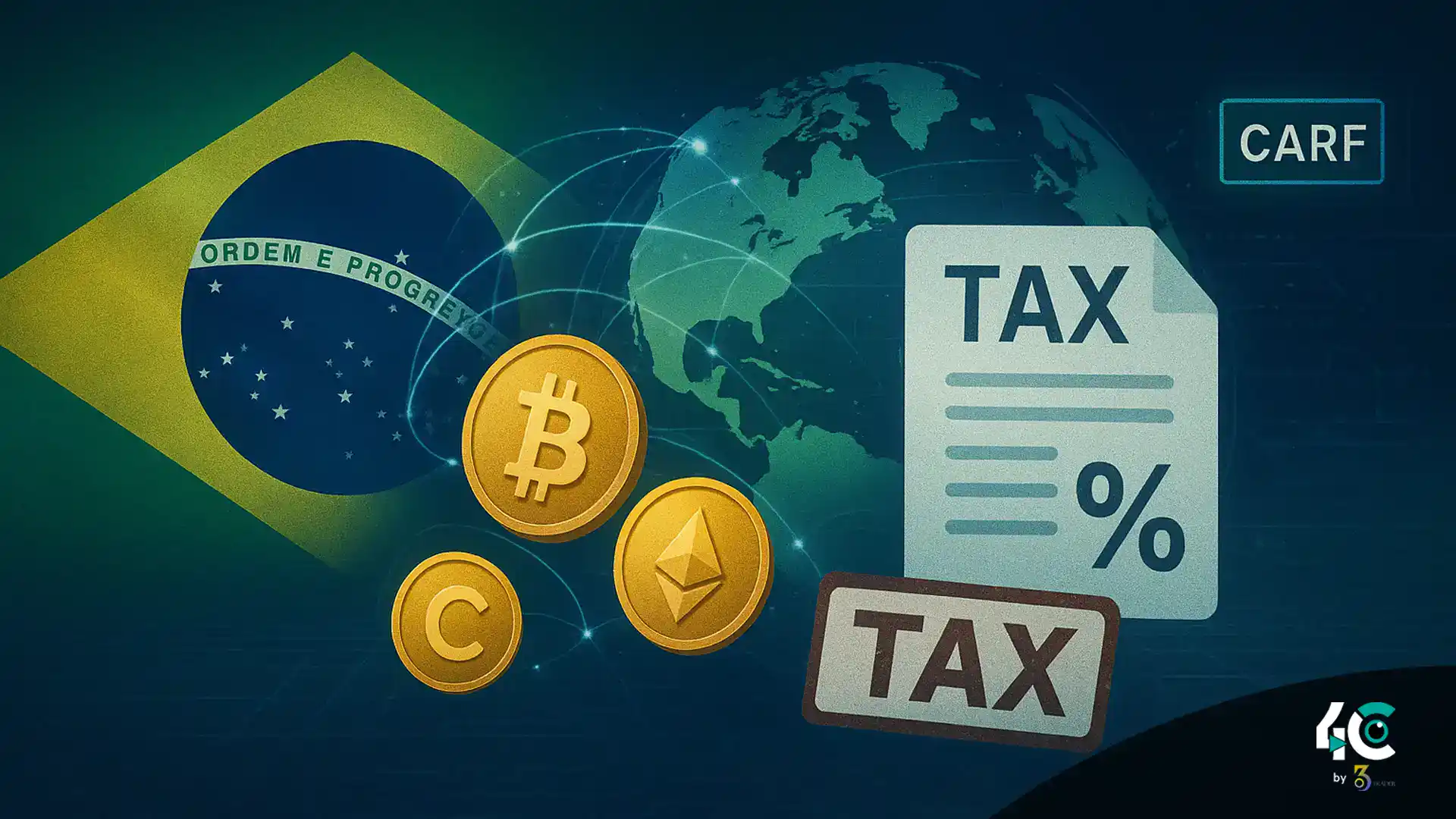Brazil Crypto Tax Reform Set to Target Cross-Border Payments
Brazil is taking another decisive step toward tightening cryptocurrency oversight, with officials now considering extending taxes to digital asset–based international payments. According to a Reuters report citing insiders “with direct knowledge of the discussions,” the government is weighing whether cryptocurrencies should fall under the Imposto sobre Operações Financeiras (IOF) — a broad federal tax applied to foreign exchange and financial transactions.
During private meetings, members of Brazil’s finance ministry reportedly expressed interest in expanding IOF to certain crypto transactions, especially those used as cross-border payment rails. The discussions highlight a growing concern among regulators that digital assets, particularly stablecoins, are functioning as unofficial foreign-exchange tools without being subject to standard taxes.
Brazil Aligns With Global CARF Rules as Crypto Oversight Tightens
Brazil’s Federal Revenue Service (Receita Federal) announced in a legal act dated Nov. 14 that it will formally align domestic crypto-reporting rules with the Crypto-Asset Reporting Framework (CARF) — a global data-sharing standard developed by the OECD.
Once implemented, the new system will give Brazilian tax authorities access to citizens’ foreign crypto account data, closing a significant gap in their ability to track offshore holdings. Brazil signaled support for CARF back in late 2023, and this move solidifies its commitment.
The decision comes amid a wave of similar policy actions around the world:
- The White House is reviewing a proposal to integrate the U.S. into CARF
- The Council of the European Union has endorsed its own CARF-aligned reporting rules
- The United Arab Emirates signed on to the global data-sharing standard in late September
These parallel efforts show a coordinated global push to eliminate crypto-enabled tax evasion.
Also Read : Tangem Launches Tangem Pay: A Visa Card for Stablecoin Payments
Brazil Crypto Tax Plan Targets Loopholes in the FX Market
Cryptocurrencies are currently exempt from the IOF tax, although capital gains on digital assets are taxed at a flat 17.5%. However, regulators argue that excluding crypto from IOF has created a loophole — one that allows digital assets, especially stablecoins, to be used like foreign currency without paying traditional foreign-exchange (FX) taxes.
According to Reuters’ sources, the goal is straightforward: prevent regulatory arbitrage and ensure crypto payments follow the same rules as traditional FX operations. Officials emphasized that new rules are designed to:
“make sure the use of stablecoins does not create uneven treatment compared to the formal foreign-exchange market.”
This is part of a broader cleanup effort from Brazil’s central bank, which recently reclassified certain stablecoin and crypto wallet interactions as foreign exchange operations. The update extends consumer protection, transparency, and anti-money-laundering standards to exchanges, custodians, and intermediaries.
Brazil Continues Its Sweep of Crypto Loopholes
Brazil has been tightening crypto oversight throughout 2024 and 2025. Earlier this year, Brazilian judges were granted authority to seize crypto assets from debtors — a reminder that digital assets, though not legal tender, carry value and can be used as payment.
The Superior Court of Justice stated plainly:
“Although they are not legal tender, crypto assets can be used as a form of payment and as a store of value.”
With the government now preparing to tax cross-border crypto transactions and join a global tax-reporting regime, Brazil is signaling that the era of unmonitored digital asset activity is coming to an end.



























